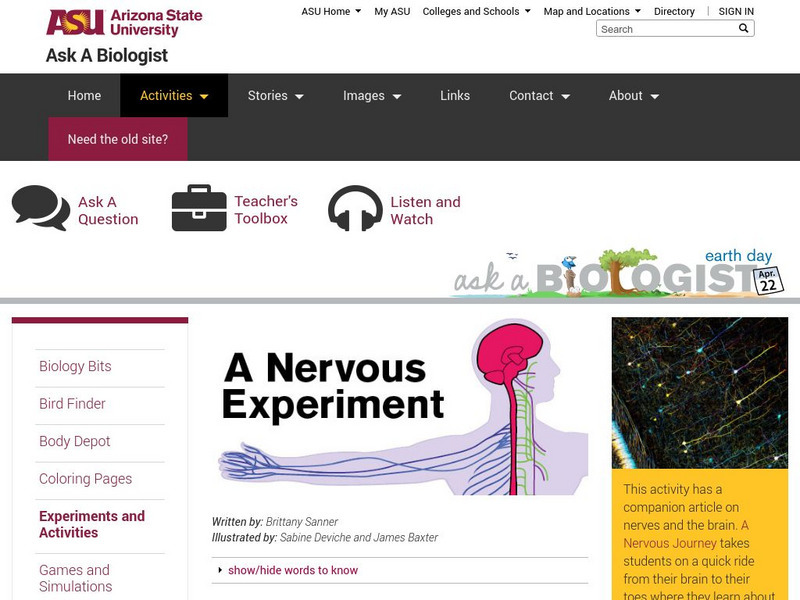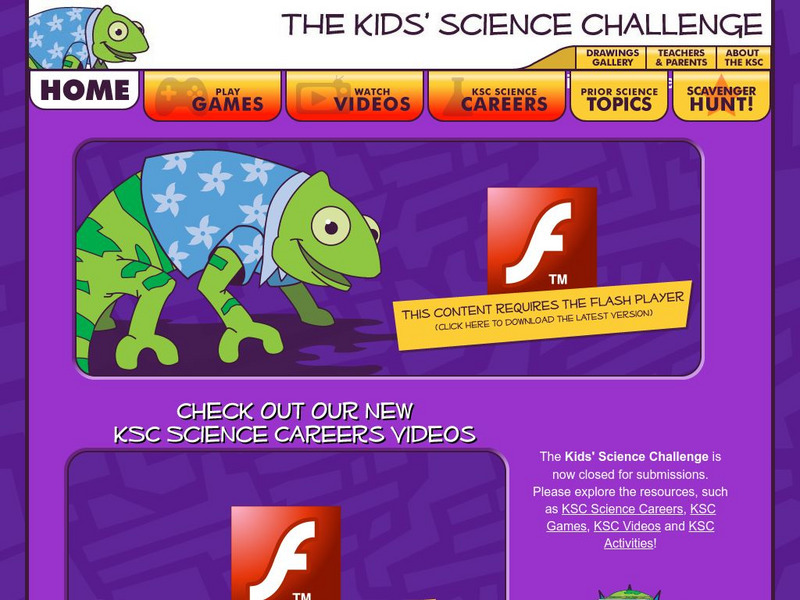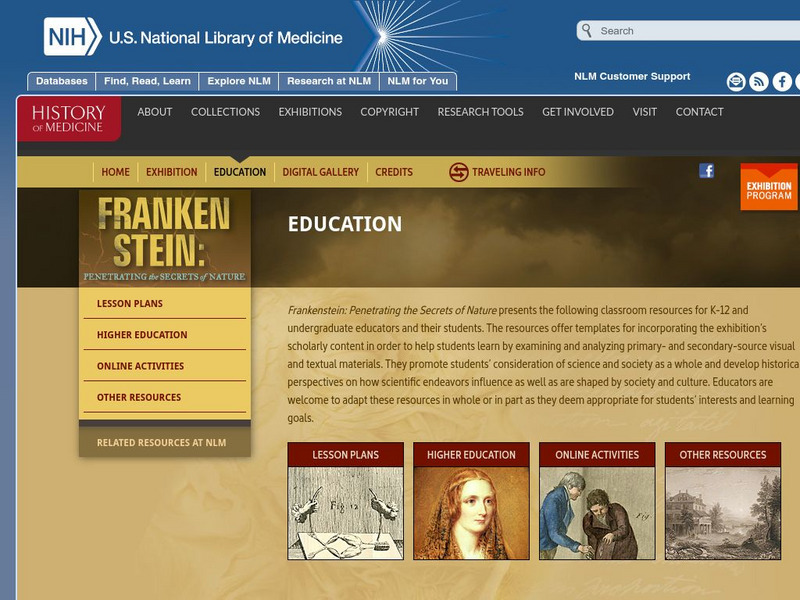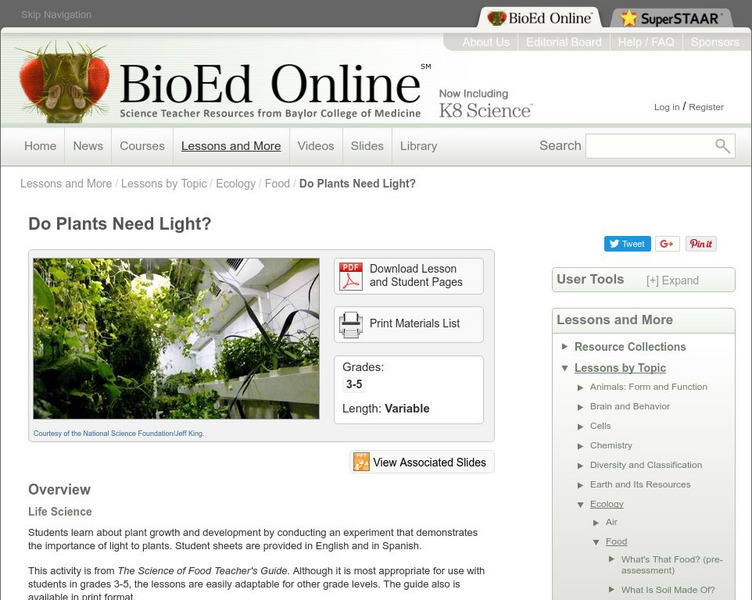Arizona State University
Arizona State University School of Life Sciences: A Nervous Experiment
How do you know when your hand touches something? How do you know if something brushes against your shoulder? Think about your fingertip, arm, and back. In which of these places might your nerves be closer together? Review the concept of...
Alabama Learning Exchange
Alex: Amazing Adaptations Probing Pinnipeds
This is a technology-rich, hands-on science experiment exploring the world of pinniped adaptations using a digital probe as a data collection device.
Science Buddies
Science Buddies: Finding Phyla
Animals come in all shapes and sizes, each a small part of the amazing diversity of life. These differences can also help us to classify animals into different groups. Which group do you belong to? Do this experiment to investigate the...
Science Buddies
Science Buddies: Deep Knee Bends: Measuring Knee Stress With a Mechanical Model
Prosthetic limbs and artificial joints can help people with disease or injury lead a normal life. Sports medicine or physical therapy is also an area that relates to this experiment. Either way, this project serves as a good match if any...
Science Buddies
Science Buddies: Dog Toys: What Makes One a Favorite or a Flop to Fido?
It seems as though dogs, like people, have definite preferences for their play things. This fun project investigates what makes a toy interesting to a dog. In these experiments, you and your dog can have some fun while you learn about...
Exploratorium
Exploratorium: Science Snacks: Radioactive Decay Model
A simple experiment where pennies are thrown, then half are removed, to simulate how radioactive decay works.
PBS
Pbs Learning Media: Super Scientists
Grab your science tools and explore with PBS KIDS. Through hands-on activities and exciting media that transports you to space and in the Earth, this collection will bring science to life in your classroom. These resources help students...
Other
Kids' Science Challenge: Fun Educational National Competition!
A nationwide annual science competition for elementary and intermediate school students. Winning students are given the opportunity to work with a scientist to help bring their idea to life. Contest prizes include science trips, science...
National Institutes of Health
National Library of Medicine: Electricity, Frankenstein, & the Spark of Life
Using an online exhibition, investigate how Mary Shelley's horror science fiction story, Frankenstein, reflects the knowledge and studies of electricity, and how those fictional ideas are used in modern medicine.
BioEd Online
Bio Ed Online: Do Plants Need Light?
Plants need air, water, soil, and light to grow. Students learn about plant growth and development by conducting an experiment that demonstrates the importance of light to plants.
Other
Tea: Some Like It Hot, Some Like It Cold Microbial Life
A science lab to determine the optimal temperature for common bacteria to grow. Students will graph their data to analyze and focus on bacteria that live in extreme conditions. To complete this experiment students will perform a gram stain.
TeachEngineering
Teach Engineering: Life in Space: The International Space Station
Students are introduced to the International Space Station (ISS) with information about its structure, operation and key experiments. The ISS itself is an experiment in international cooperation to explore the potential for humans to...
PBS
Pbs Learning Media: Biome in a Baggie
This ZOOMSci video segment shows how to create self-contained environments and explore how plants grow under different conditions. [3:24]
US Environmental Protection Agency
Epa: Acid Rain
What are the causes and effects of acid rain in our environment? To learn more about this serious environmental issue check out this website. Contains a page with several acid rain activities for students.
Children's Museum
The Children's Museum of Indianapolis: Cells the Living School
Middle schoolers compare the parts of a cell and their functions to their school to understand how a cell's parts work in unison to be effective in the body.
Alabama Learning Exchange
Alex: The Evidence of Chemistry
The students will learn to identify evidence that a chemical reaction has taken place. They will use the Internet to research evidence and find examples. They will look around their school and neighborhood for examples. They will perform...













